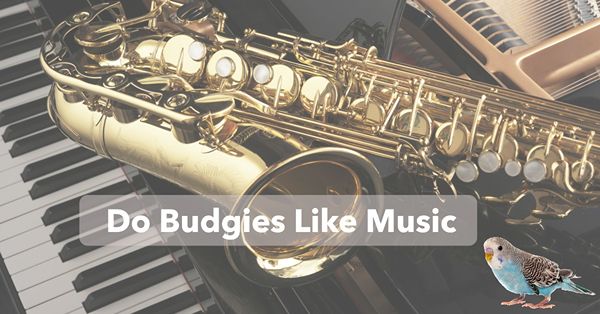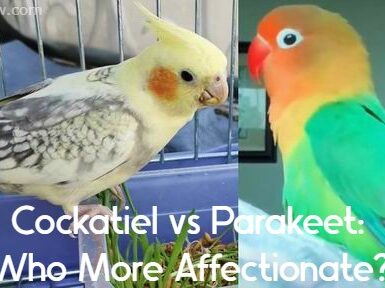
Budgies are well-known companion animals, and most people adore their colorful plumage, smart eyes, and cheerful characters. However, not many realize that these birds have amazing hearing and rhythm for their size.
Why Budgies Love Music: Behaviors and Reasons
Many owners of Budgies notice that their youngsters notice music and begin to dance, sing songs, or play instruments. But why does this happen?
The scientific community has long debated whether birds are ready to understand the music of people and others. However, studies have shown that the capacity for music is different from the human capacity is pleasure of the senses and impulses of sound.
In this note, I would like to look at the behavioral characteristics of Budgies as they relate to music and qualify why they love it.
Behavioral Peculiarities: Sincerity and Comfort
Budgies are rather soul-dispersing birds and new to contact with people. They love company and will not explicitly refuse to play with their beloved owners. These birds are very social and often come into contact with other birds.
Playfulness and dedication to pleasure
Budgies love to play and have fun. They can spend a lot of time playing with toys, flying around, and stealing things from their owners. Also parrots do not want to play and have fun themselves. This shows the deepest need for this game.
Many owners put this at a disadvantage.
Often owners do not know that Budgies need company and attention. They may suffer the costs of solitude and human contact. That is why it is important to provide enough time and attention.
Sensitivity to Music
Parrots are very sensitive to music and rhythm. They like to listen to music and play tunes that mimic melodies. They have the opportunity to go and dance with the loudness of music. This is due to their innate behavior and desire to socialize. Their response to music can be very different depending on mood and structure.
Some birds will actively begin to sing, recite texts, or make musical noises. They will take every opportunity to go to the rhythm of the music, shuffle their feet, or dance if given the chance. As a rule, they like melodic and lively music, be it classical, jazz, or pop.
However, there are some Budgies that do not pay attention to music. This could be due to lack of attention or bird voting. Some birds have the opportunity to freeze inert and close themselves if they are in an uncomfortable mood.
- Based on mood and structure, personal music may need to be selected for all birds.
- In general, Budgies are very sensitive to music and have the opportunity to respond quite uniquely.
Ability to Imitate
Wave parrots are renowned masters of mimicking human speech, the sounds of household appliances, and of course music. Their specialty of playing music is one of the most famous behavioral traits of this family of birds.
The parakeet’s ability to imitate is related to their developed vocal cords and their ability to synchronize speech and sound. They combine a multitude of different sounds to create a representation that sounds like human speech or music of any kind.
In addition to their own mimetic abilities, Budgies are ready to learn any song or melody they hear. Furthermore, they actively participate in improvising melodies using their own voices and all kinds of sound effects.
In general, the ability to imitate music is one of the main reasons parrots love music. They are willing to make original sounds, play great melodies and duets, and get to know people in the language of music.
Effects on the emotional state of the bird
Budgies have every opportunity to respond to all kinds of musical genres and individual compositions. Music has the ability to influence emotional states and behavior.
Research has shown that musical styles that contain sharp rhythms and have a pace of 120 beats per minute can make birds more energetic. They begin to take to the music, sing along and play with their toys.
However, very loud and annoying music can cause stress to the parakeet, which is not good for his well.
Some owners use music to calm their birds. Thus, soft, low music that helps the bird relax and fall asleep.
In general, music has a great impact on the parakeet’s emotional state and helps him show his own personality.
Why do budgies love music?
Sensitivity. Wave parrots are very sensitive to sound, thanks to their powerful auditory system. Music, which we hear only half-voiced, is quite noisy and lively for them. They respond to the sound of different instruments and voices, and their behavior varies according to melody and rhythm.
Willingness to Communicate
Wave parrots are very sociable and music helps them to show their enjoyment. They often begin to sing and dance when they hear a tune, and this can be a technique to help them get to know other birds and people.
Brain Stimulation
Music has the ability to initiate brain activity in birds, just as it does in humans. Studies have shown that listening to music then improves mood and increases brain energy in Budgies.
- Music has the ability to reduce stress.
- It has the ability to freeze certain commands and beautiful means of learning tricks.
- Melodic sounds have the opportunity to strengthen the association between bird and owner.
Genetic Factors
Budgies have an ingenious ability to listen to music. Genetics and parrot studies indicate that this ability is related to the genetic layout of the bird.
These birds have a gene involved in processing audio information. Because of this gene, Budgies have the opportunity to clearly understand and learn melodies. Their melodic facility is a genetic individuality that is recorded in their DNA.
Wave parrots also have a face that shows more appreciation and attention to music. This supports irrationality, but the original real life is the only characteristic of certain supporters of the devil nature.
Social Environment
Budgies are fairly social social birds. They like to live in colonies and stay near other birds. As a result, they like to listen to music with other parrots.
If a bird has a partner Papegaai, it is not uncommon for them to listen to music together. This helps them cement their own business and buddy bug habits.
The mood around the parrots also affects their behavior. If there is a moderate and relaxed environment in the room, the birds will also be more moderate and relaxed.
However, if something loud and interesting happens around the parrots, they may show more interest in the music and start singing and dancing to keep the mood going.
- Finally, the main reason is considered why Budgies love music.
- Socialization and desire to be with their own kind
- Bonding with other parrots
- Mood influences on the bird’s behavior
These points make it clear that the graça paradoxically has every opportunity to become a real music lover and behaves quite artistically and amusingly when mimicking the sounds of musical instruments and dancing to music with their avian friends.
The Need for Diversity
Rainbirds are quite social birds and music is considered a way for them to show their sensitive habits to their owners. Like people, the bird has the ability to experience the need for diversity in his life. Music initiates intelligence and helps fulfill that need.
The rhythm and melody of music can keep the parrot wavy and elevate his mind at times of acidity or monotony. For example, I like to listen to a variety of musical genres, from traditional to rock to well-known music. This is because it helps him experience new impressions and emotions.
- Different music as an incentive: listening to fresh music helps the wavy parrot show energy and feel more interested in his or her life.
- Sense of peace and comfort: music can influence mood and help you relax and enjoy music.
- Attention to change: Budgies tend to bring constant change into their lives, and music is a technique to satisfy this need for organization.
Quick Answers:
Question: Why do Budgies love certain musical genres?
Answer: Every bird, in its number of Budgies, has a personal musical preference. This is influenced by their personal preferences and the situation they are in. Some birds like struggling music, others love rhythmic music. But all birds love music with a lively rhythm.
Q: Can music have a negative effect on wavy parrot wells?
Answer: Music does not adversely affect parakeet wells. However, when listening, some criteria should be considered to avoid overloading the bird’s ears with deafening music.
Question: What kind of music has the most positive effect on Budgies?
Answer: music with a flexible, melodic sound has the greatest positive effect on the parakeet, as this music may contribute to a quiet, peaceful atmosphere. Additionally, parrots love music with lively rhythms. The important thing is not to make the music too loud or too loud; it should be loud enough for the parrots to hear it.
Question: Can music help educate and train parakeets?
ANSWER: Music helps in the upbringing and training of Budgies. In this way, melodic music helps relax the bird. This will definitely help him adapt to his new environment. Also, some melodies can be used to learn new commands such as beeps.
Question: Is it possible for a wavy parrot to “learn” music numbers?
Answer: Yes, Budgies can “learn” music numbers. They have a large memory and the ability to mimic sounds. If a parrot plays the same tune frequently, they can learn it and repeat it independently. In addition, parrots can perform beautiful improvisations and form personal versions of popular songs.






Add comment